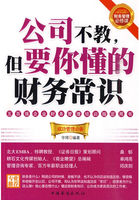The front shop-window was especially interesting to us children,for there were in it a few glass jars containing sticks of striped barley-candy,and red and white peppermint-drops,and that delectable achievement of the ancient confectioner's art,the "Salem gibraltar."One of my first recollections of my father is connected with that window.He had taken me into the shop with him after dinner,--I was perhaps two years old,--and I was playing beside him on the counter when one of his old sea-comrades came in,whom we knew as "Captain Cross."The Captain tried to make friends with me,and,to seal the bond,asked my father to take down from its place of exhibition a strip of red peppermints dropped on white paper,in a style I particularly admired,which he twisted around my neck,saying,"Now I've bought you!Now you are my girl.Come,go home with me!"His words sounded as if be meant them.I took it all in earnest,and ran,scared and screaming,to my father,dashing down the sugar-plums I wanted so much,and refusing even to bestow a glance upon my amused purchaser.My father pacified me by taking me on his shoulders and carrying me "pickaback"up and down the shop,and I clung to him in the happy consciousness that Ibelonged to him,and that be would not let anybody else have me;though I did not feel quite easy until Captain Cross disappeared.
I suppose that this little incident has always remained in my memory because it then for the first time became a fact in my consciousness that my father really loved me as I loved him.He was not at all a demonstrative man,and any petting that he gave us children could not fail to make a permanent impression.
I think that must have been also the last special attention Ireceived from him,for a little sister appeared soon after,whose coming was announced to me with the accompaniment of certain mysterious hints about my nose being out of joint.I examined that feature carefully in the looking glass,but could not discover anything usual about it.It was quite beyond me to imagine that our innocent little baby could have anything to do with the possible disfigurement of my face,but she did absorb the fondness of the whole family,myself included,and she became my father's playmate and darling,the very apple of his eye.Iused sometimes to wish I were a baby too,so that he would notice me,but gradually I accepted the situation.
Aunt Hannah used her kitchen or her sitting room for a schoolroom,as best suited her convenience.We were delighted observers of her culinary operations and other employments.If a baby's head nodded,a little bed was made for it on a soft "comforter"in the corner,where it had its nap out undisturbed.
But this did not often happen;there were so many interesting things going on that we seldom became sleepy.
Aunt Hannah was very kind and motherly,but she kept us in fear of her ferule,which indicated to us a possibility of smarting palms.This ferule was shaped much like the stick with which she stirred her hasty pudding for dinner,--I thought it was the same,--and I found myself caught in a whirlwind of family laughter by reporting at home that "Aunt Hannah punished the scholars with the pudding-stick."There was one colored boy in school,who did not sit on a bench,like the rest,but on a block of wood that looked like a backlog turned endwise.Aunt Hannah often called him a "blockhead,"and Isupposed it was because he sat on that block.Sometimes,in his absence,a boy was made to sit in his place for punishment,for being a "blockhead "too,as I imagined.I hoped I should never be put there.Stupid little girls received a different treatment,--an occasional rap on the head with the teacher's thimble;accompanied with a half-whispered,impatient ejaculation,which sounded very much like "Numskull!"I think this was a rare occurrence,however,for she was a good-natured,much-enduring woman.
One of our greatest school pleasures was to watch Aunt Hannah spinning on her flax-wheel,wetting her thumb and forefinger at her lips to twist the thread,keeping time,meanwhile,to some quaint old tune with her foot upon the treadle.
A verse of one of her hymns,which I never heard anybody else sing,resounds in the farthest corner of my memory yet:"--"Whither goest thou,pilgrim stranger,Wandering through this lowly vale?
Knowest thou not 't is full of danger?
And will not thy courage fail?"
Then a little pause,and the refrain of the answer broke in with a change,quick and jubilant,the treadle moving more rapidly,also:-"No,I'm bound for the kingdom!
Will you go to glory with me?
Hallelujah!Praise the Lord!"
I began to go to school when I was about two years old,as other children about us did.The mothers of those large families had to resort to some means of keeping their little ones out of mischief,while they attended to their domestic duties.Not much more than that sort of temporary guardianship was expected of the good dame who had us in charge.
But I learned my letters in a few days,standing at Aunt Hannah's knee while she pointed them out in the spelling-book with a pin,skipping over the "a b abs "into words of one and two syllables,thence taking a flying leap into the New Testament,in which there is concurrent family testimony that I was reading at the age of two years and a half.Certain it is that a few passages in the Bible,whenever I read them now,do not fail to bring before me a vision of Aunt Hannah's somewhat sternly smiling lips,with her spectacles just above them,far down on her nose,encouraging me to pronounce the hard words.I think she tried to choose for me the least difficult verses,or perhaps those of which she was herself especially fond.Those which I distinctly recall are the Beatitudes,the Twenty-third Psalm,parts of the first and fourteenth chapters of the Gospel of St.John,and the thirteenth chapter of the First Epistle to the Corinthians.















